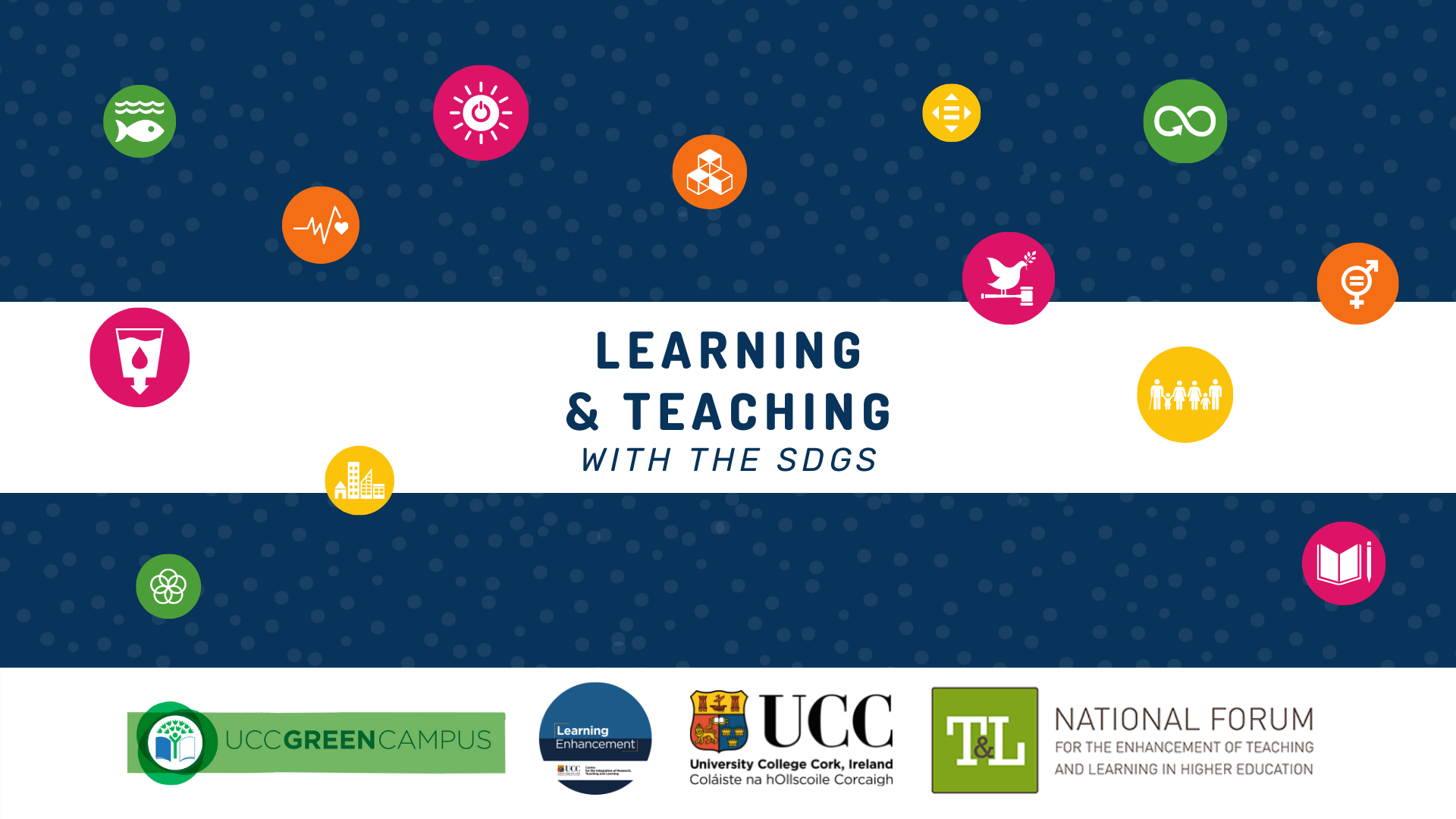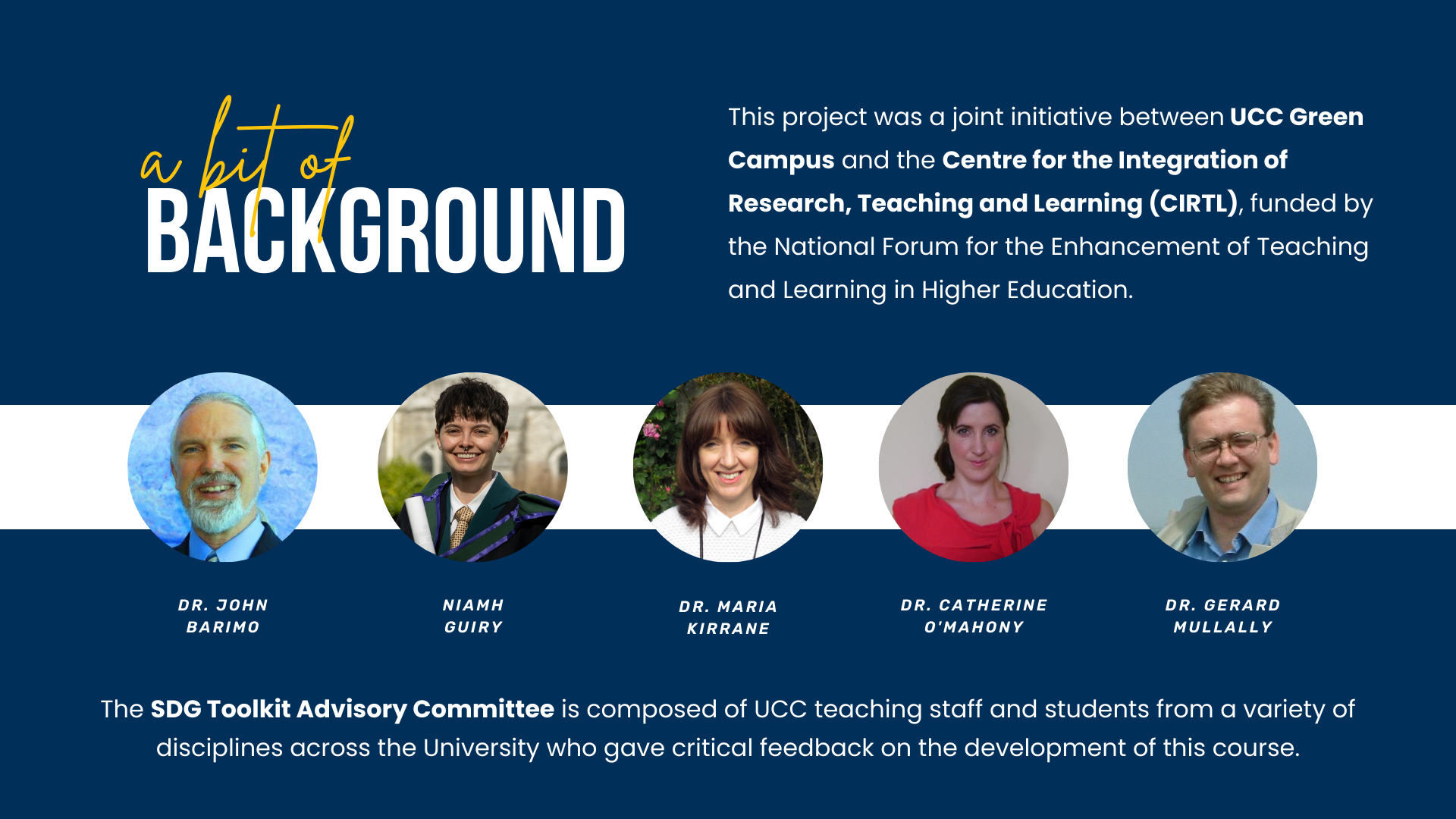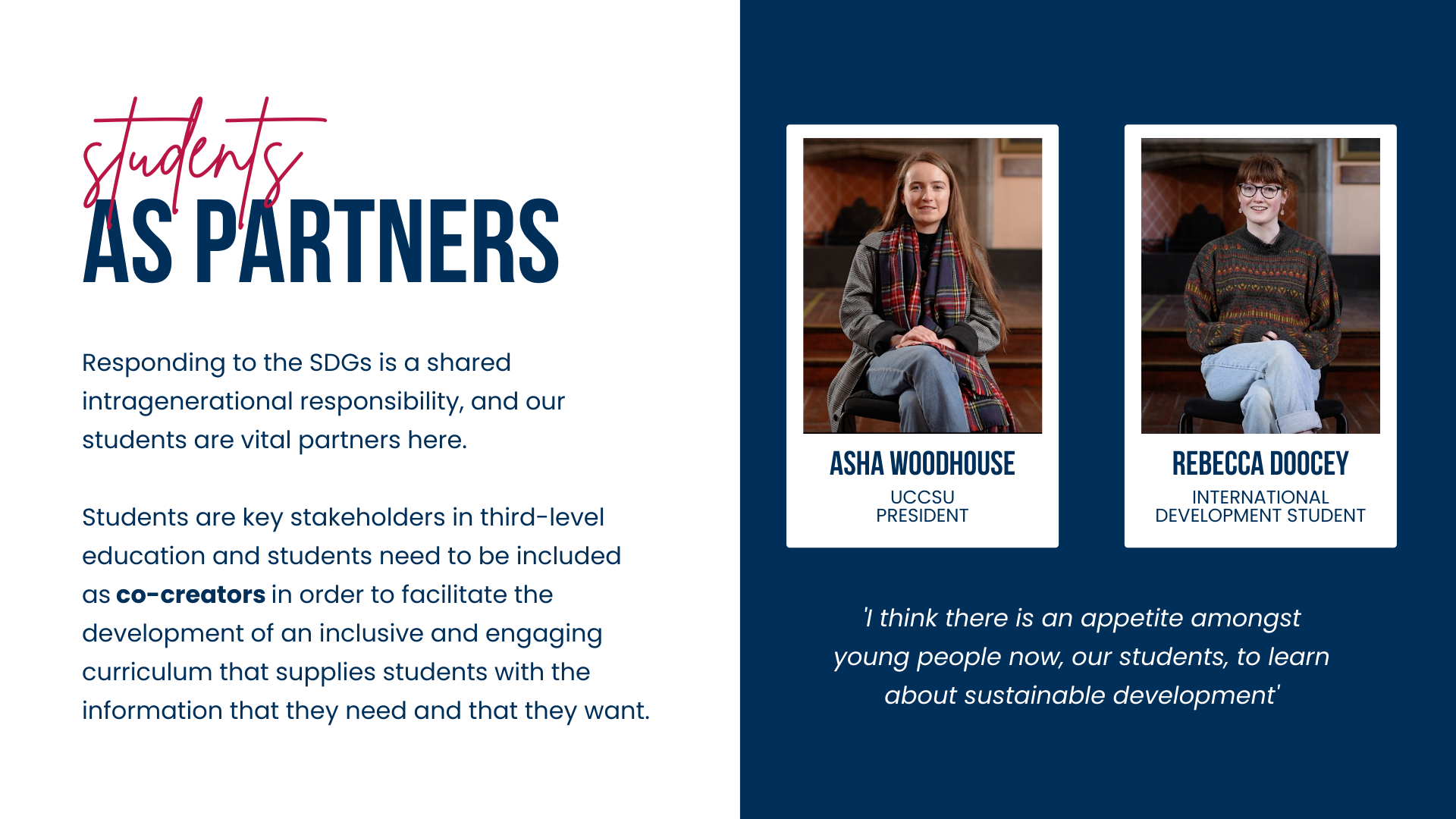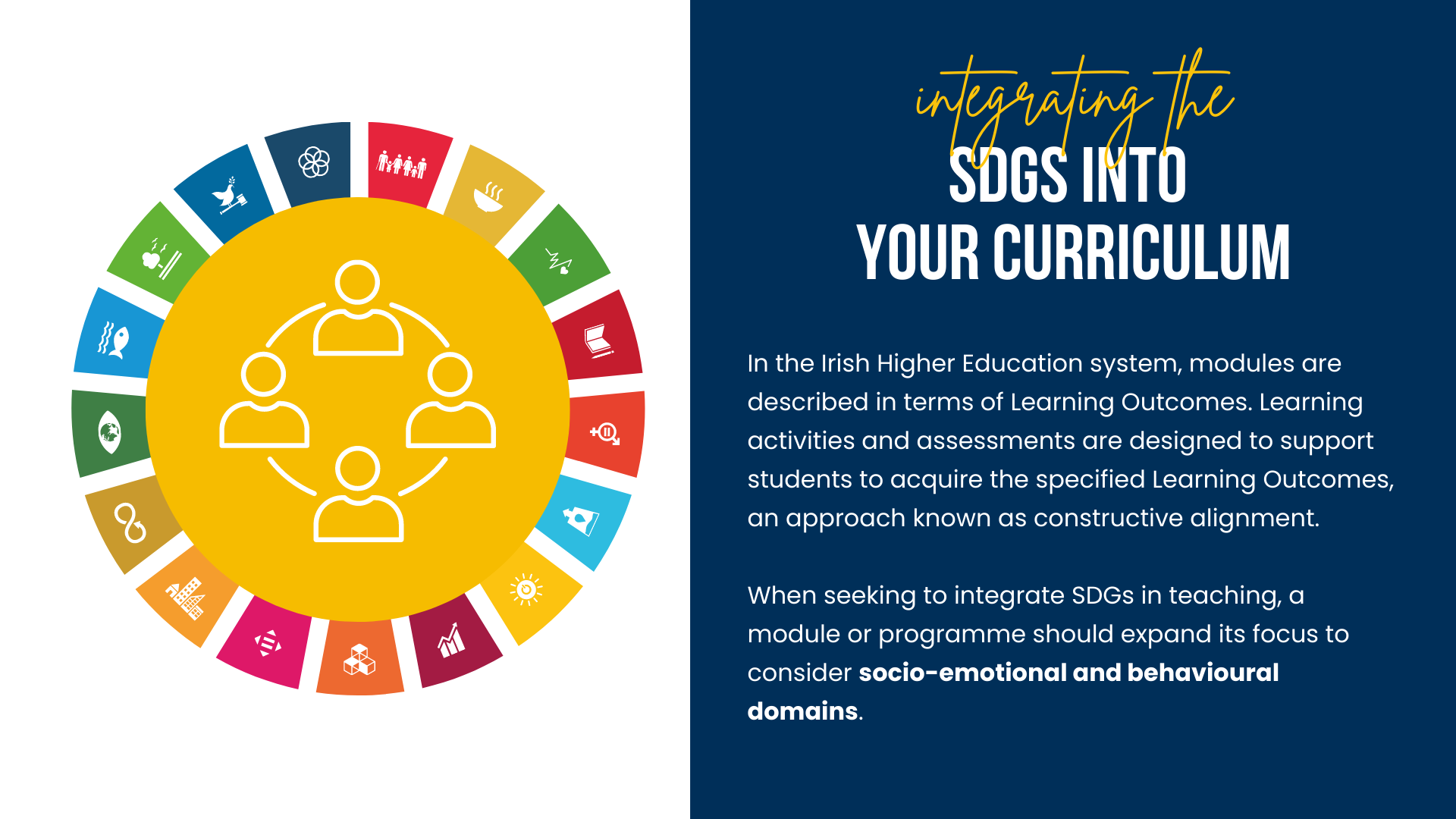News
Learning & Teaching With The SDGs

On May 30th 2022, members of the UCC Community gathered on the Shteppes in the Student Hub for the launch of UCC’s brand-new Digital Badge course, Learning & Teaching With The SDGs. The event consisted of a speech by UCC President John O’Halloran who officially launched the Digital Badge, followed by presentation to attendees which outlined the rationale behind the course and provided an overview of the course contents.

Following this, a cross-disciplinary panel discussion was held featuring Dr. Ger Mullally (Deputy Head in the Department of Sociology and Criminology), Dr. John Barimo (Engaged Research Officer), Dr. Angela Flynn (Lecturer at the School of Nursing & Midwifery), and Asha Woodhouse (UCCSU President), moderated by Dr. Catherine O’Mahony (Director of CIRTL). The conversation explored the SDGs in more depth, their strengths and shortcomings, and the critical importance of supporting students in their role as co-creators in curriculum development.
Learning & Teaching With The SDGs is now live and open for teaching staff to sign up to and complete. You can sign up to take the course here.
Why Create This Course?
We are living through an ever-increasing climate and biodiversity crisis, and educating ourselves, current and incoming students and staff on this reality is essential. The climate crisis is by no means an easy reality to face and the way we approach these conversations needs to be considered and intentional. We must communicate the realities of climate change and the interlinked social justice issues in a way that empowers people to become proactive agents of change in their personal lives, institutions, and local communities.
Aims
This course uses a stepwise approach to introduce teaching staff to the SDGs, help them identify links between their modules and the goals, and facilitate the integration of the SDGs into their curriculum. The course was designed by an interdisciplinary team made up of staff from CIRTL, UCC Research, UCC Green Campus, and CACSSS, and nter- and transdisciplinary approaches are key features of the Digital Badge and the SDGs themselves. This is a short, self-paced course that was designed to result in usable outputs while linking to key theory and policy.
This course has 5 Learning Outcomes:
- Identify students' perspectives on SDGs.
- Explain the background to and rationale for the SDGs and the UN 2030 Agenda.
- Map the links between your module and the SDGs and SDG Target(s), and how your discipline or module sits within the SDG framework.
- Reflect on ways to further embed SDGs in your curriculum.
- (Re)Design your module/teaching based on learning from this course.
There are several different activities and assignments to complete which allow learners to realise these Learning Outcomes. Furthermore, none of the modules are gated (meaning you have access to all of the course content and resources upon enrolling), which means that this course can act as an open resource to staff who want to explore this area further.

Course Structure & Content
The course is divided into 4 modules:
- Students As Partners: The Student Voice.
- Learning About The SDGs.
- Connecting Your Module To The SDGs.
- Integrating The SDGs Into Your Curriculum.
The course intentionally begins with a student-centric module to highlight the wants and needs of students in their education and ensure that the student perspective was solidified in people's minds for the rest of the Digital Badge. Module 2 gives staff a deeper insight into the 17 SDGs and their accompanying targets and stresses the interconnected, interdisciplinary nature of Agenda 2030. The SDG Toolkit is a key resource in this Digital Badge and it is used as a tool in the course activities to help staff map their curriculum connections to the SDGs.
Module 3 helps learners connect their module to the SDGs. This section features 8 UCC staff interviews from different disciplines who share the approaches they have taken when connecting their discipline with the SDGs. Redesigning a module to integrate the SDGs can be an evolving process, especially as staff grow more familiar with the SDGs and how they relate to their module or discipline. The course also uses the Connected Curriculum Self-Evaluation Tool to highlight how sustainability could be integrated into a module or programme.
Finally, Module 4 goes through the process of intentionally designing the curriculum to integrate sustainability. A core feature of Education for Sustainable Development is that it is action-oriented. Teaching approaches that support students to gain key competencies to respond to the SDGs are those that encourage self-directed learning, and foster participation and collaboration, often with an inter- or transdisciplinary focus. This module introduces different kinds of learning activities, how to design authentic assessments, and provides some practice-based examples.
After completing the various module activities and assignments, you are eligible to collect your digital badge.
Moving Forward
By integrating sustainability into the core of the teaching and learning experiences in UCC, we can grow together, gain knowledge and share experiences. This course allows staff to future-proof their curriculum by embedding sustainability into their teaching practices. This Digital Badge could be a great way to spark people's interest in sustainability issues, inspiring them to get proactive with their climate action and demand change from our leaders.

By understanding the complexities of sustainable development, the interconnected SDGs, and how different academic disciplines relate to sustainability issues, we can empower students and staff with critical knowledge which will help us to work together to shape our work, research, laws, communities, and national actions to safeguard the planet and its inhabitants.
